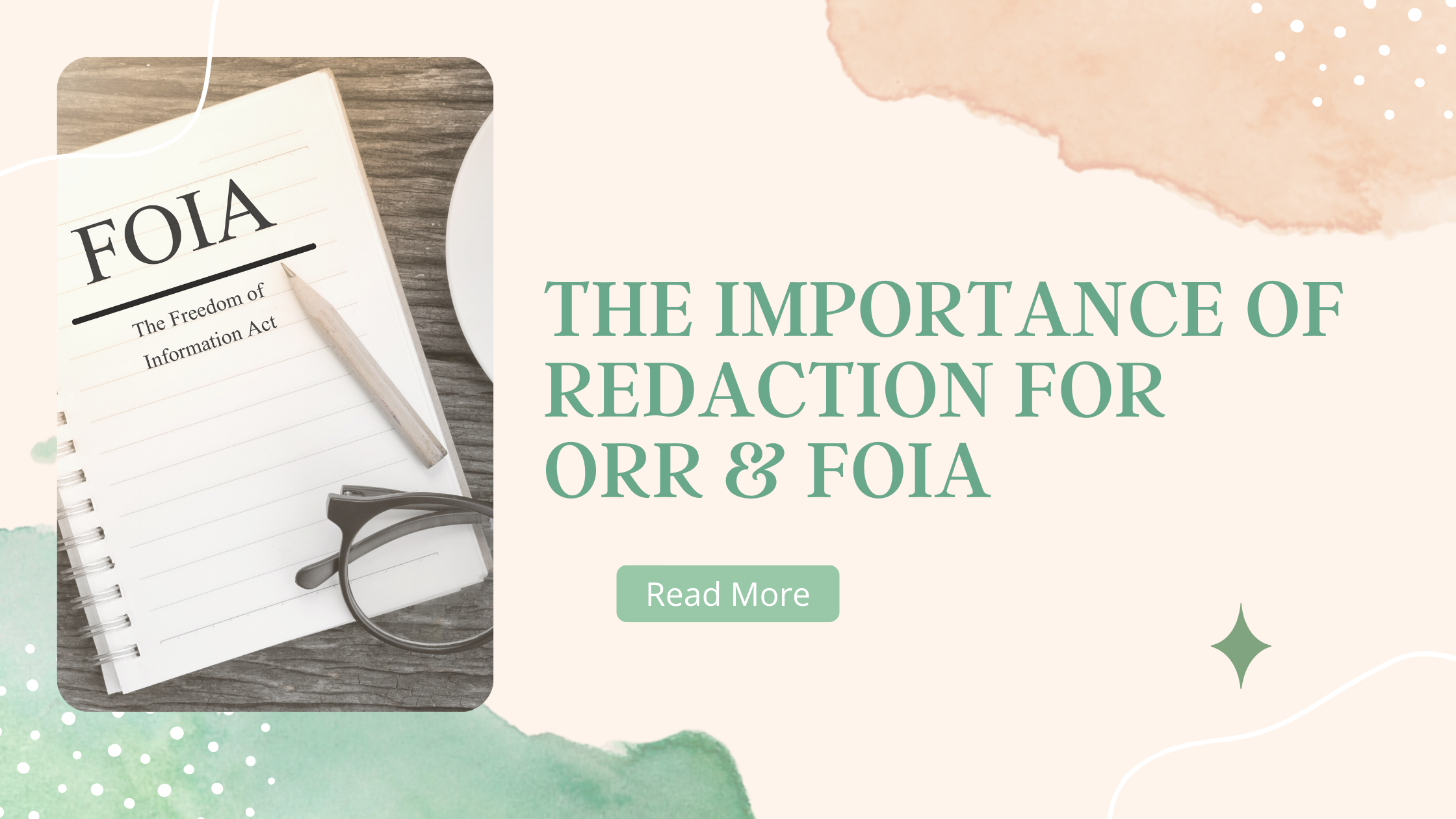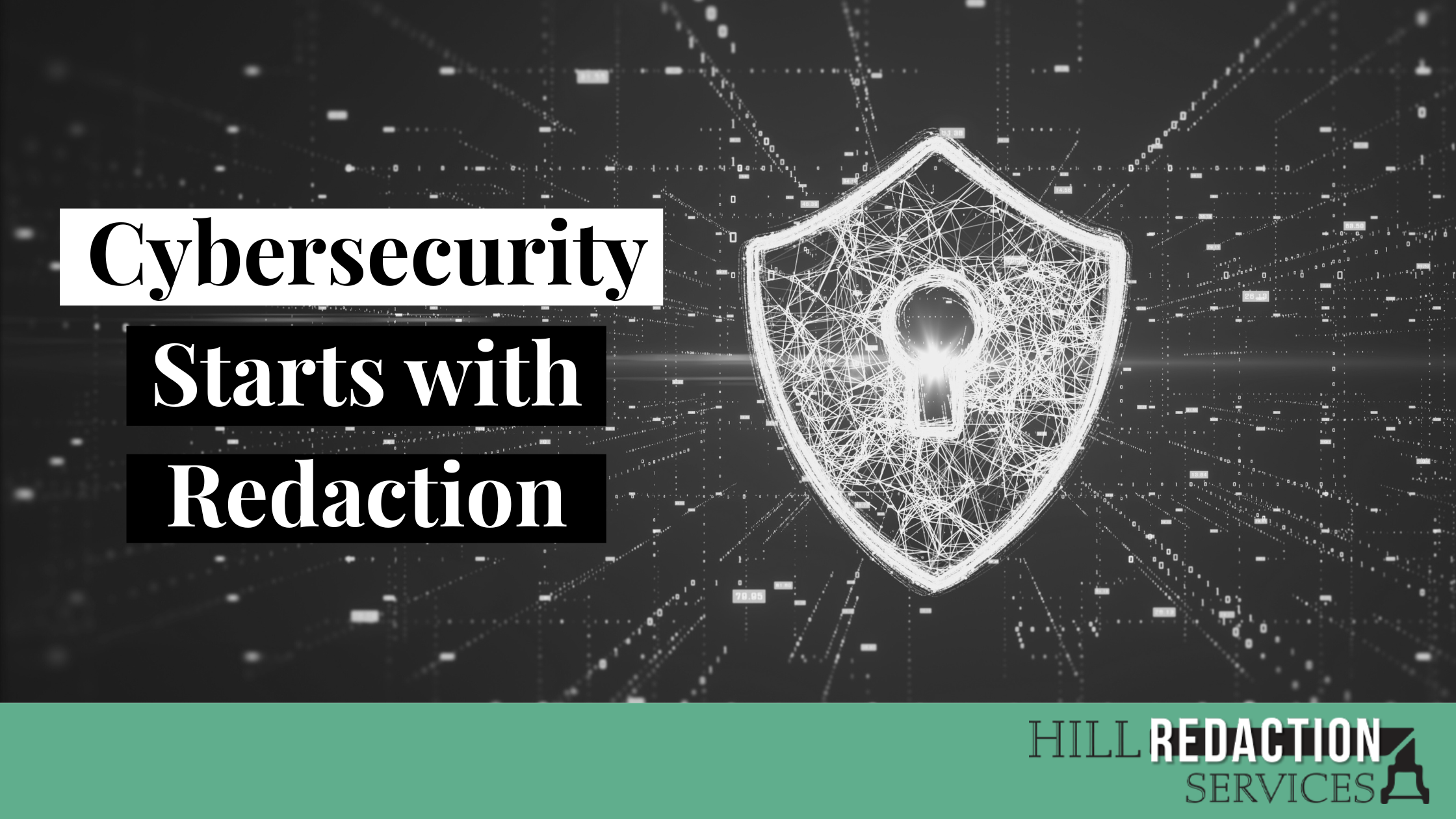
The Importance of Redaction for ORR and FOIA
Just like many other states, South Carolina truly values the role of transparency and public involvement in its democratic workings. The Open Records Act (OPRA) and the Freedom of Information Act (FOIA) are major cornerstones of legislation in the state, ensuring that citizens can freely access public records. But it’s not just about openness.
There’s also a significant need to shield personal and sensitive information from being publicly disclosed. That’s where redaction steps into the picture, playing an essential role in maintaining this balance. In this article, we’ll explore the importance of redaction in South Carolina’s OPRA and FOIA laws and how it helps to protect both the public’s right to know and an individual’s right to privacy.
Understanding OPRA and FOIA
The South Carolina Public Records Laws, which include the FOIA, mandate that public business should be conducted in an open and transparent manner. The FOIA allows citizens to inspect or obtain records of public bodies. Similarly, OPRA ensures that records must be provided in a form that is convenient and practical for the requester.
However, both laws also contain provisions to safeguard sensitive information. For instance, in response to a FOIA request, law enforcement can redact information of a personal nature where its public disclosure would constitute an unwarranted invasion of personal privacy.
The Vital Role of Redaction
Redaction is like the silent guardian in the world of public information. It’s there to ensure that while we all enjoy openness and transparency, we also respect and protect individual privacy. In South Carolina, when you ask for a public document, say a police report, certain costs might be involved. These include fees for searching, retrieving, redacting, and copying the requested records.
Imagine this: you’ve used the Freedom of Information Act to request a police report. Now, while transparency is crucial, so is protecting sensitive information. That’s where our guardian, redaction, steps in. The law enforcement agency can use it to hide specific details in the report. This could be the names of minors or victims of sexual assault or any piece of information that might jeopardize an ongoing investigation. It’s about striking the right balance between our right to know and the need to protect.
Redaction: A Necessary Shield
While the FOIA and OPRA promote transparency, they are not tools for violating privacy. The act of redaction serves as a shield, protecting individuals from potential harm that could arise from the inappropriate disclosure of sensitive information. It ensures that while the public remains informed, the privacy and safety of individuals are not compromised.
Moreover, redaction also protects the state’s interests. Certain information, if revealed, could potentially harm ongoing investigations or disclose confidential strategies.
Conclusion
In conclusion, redaction is vital in maintaining the balance between transparency and privacy. It is a necessary tool under South Carolina’s OPRA and FOIA laws to protect sensitive information while promoting openness. As citizens, we must recognize the importance of redaction and support its use in safeguarding both our right to know and an individual’s right to privacy.
Related Posts

The Importance of Redaction for ORR and FOIA
Just like many other states, South Carolina truly values the role of transparency and public involvement in its democratic workings. The Open Records Act (OPRA) and the Freedom of Information Act (FOIA) are major cornerstones of legislation in the state, ensuring that citizens can freely access public records. But it’s not just about openness.
There’s also a significant need to shield personal and sensitive information from being publicly disclosed. That’s where redaction steps into the picture, playing an essential role in maintaining this balance. In this article, we’ll explore the importance of redaction in South Carolina’s OPRA and FOIA laws and how it helps to protect both the public’s right to know and an individual’s right to privacy.
Understanding OPRA and FOIA
The South Carolina Public Records Laws, which include the FOIA, mandate that public business should be conducted in an open and transparent manner. The FOIA allows citizens to inspect or obtain records of public bodies. Similarly, OPRA ensures that records must be provided in a form that is convenient and practical for the requester.
However, both laws also contain provisions to safeguard sensitive information. For instance, in response to a FOIA request, law enforcement can redact information of a personal nature where its public disclosure would constitute an unwarranted invasion of personal privacy.
The Vital Role of Redaction
Redaction is like the silent guardian in the world of public information. It’s there to ensure that while we all enjoy openness and transparency, we also respect and protect individual privacy. In South Carolina, when you ask for a public document, say a police report, certain costs might be involved. These include fees for searching, retrieving, redacting, and copying the requested records.
Imagine this: you’ve used the Freedom of Information Act to request a police report. Now, while transparency is crucial, so is protecting sensitive information. That’s where our guardian, redaction, steps in. The law enforcement agency can use it to hide specific details in the report. This could be the names of minors or victims of sexual assault or any piece of information that might jeopardize an ongoing investigation. It’s about striking the right balance between our right to know and the need to protect.
Redaction: A Necessary Shield
While the FOIA and OPRA promote transparency, they are not tools for violating privacy. The act of redaction serves as a shield, protecting individuals from potential harm that could arise from the inappropriate disclosure of sensitive information. It ensures that while the public remains informed, the privacy and safety of individuals are not compromised.
Moreover, redaction also protects the state’s interests. Certain information, if revealed, could potentially harm ongoing investigations or disclose confidential strategies.
Conclusion
In conclusion, redaction is vital in maintaining the balance between transparency and privacy. It is a necessary tool under South Carolina’s OPRA and FOIA laws to protect sensitive information while promoting openness. As citizens, we must recognize the importance of redaction and support its use in safeguarding both our right to know and an individual’s right to privacy.





